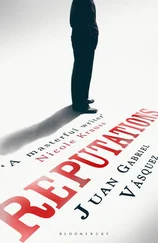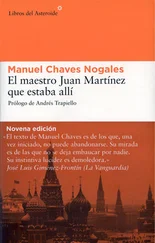Almost instantly her hands flew to her cheeks and touched her nose, numbed by the cold, and her nose was still in its place, and the same bits of skin on her chapped lips. (Perhaps to confirm that her body still existed, that machine able to feel desire.) Selma went into the stable and turned over the hay at the back, reached inside her jacket, and took out a small white paper rectangle, which she opened with her teeth and emptied onto her glove, held her glove up to Heredero’s lips, and wished the horse’s tongue would erase her from the world as it erased the sugar from her glove. Nothing happened: nothing wanted to save her. Then Selma must have accepted it, because she began to cross the gravel path (her heavy ankles, thighs full of water, hips asleep under the weight of the baby) and went inside her house through the kitchen and double-locked the door, climbed the carpeted stairs, and only as she reached the last step did she notice the magician’s hand was in her hand, not accompanying her, but holding up the unpredictable and oscillating mass of her figure. And at the end of a long gallery of doors, dark because all the rooms were closed so the warm air wouldn’t escape, at the end of this strange domestic tunnel in which Selma remembered the trick of the deck expelled from the hand and the chosen card landing in a brandy glass, at the end of the corridor, their passive, concealing accomplice, was the master bedroom that Selma walked into and the matrimonial bed, unmade and still smelling of matrimonial sleep, on which Selma lay down, on her side in the fetal position, perhaps imitating the one she carried inside her. She was already naked when she did so; the naked man came to her from behind, and she discovered almost in a panic that she didn’t know what to do with her own arms, perhaps because in this position she’d always put them where her belly now was. Selma felt the heat of another waist against her back, the pubic hair that tickled her buttocks, and felt him penetrate her at the same time she saw the magic hand come over the moon of skin and caress her full breasts, and his index finger, able to shuffle at a vertiginous speed and to feel a card of a fractionally different size in the deck of a cheating magician, played with her protruding belly button. Then the hand clung to the headboard, the magician’s open mouth fell onto Selma’s shoulder, and she, if she concentrated a little, could feel a thin stream of saliva trickling down her back that might even reach the pillowcase, which she’d have to wash and hang over the bathroom radiators to dry before Léopold came home from work for lunch and afterward felt he’d earned a nap.
III
Very little was known about that man and his reasons for taking a shine to Selma. Years earlier, when he decided to get a degree in Romance languages at the University of Liège, sure that the study of Latin declensions (those miniature spells) would save him from tedium, the professors who interviewed him wanted Chopin to tell them about his childhood, and he summed it up saying he was born in the Esneux hospital and at the age of twelve he’d first managed to throw a card more than thirty meters in an open space, the Quai de Jemmapes, for example, as long as a seagull didn’t take it thinking it was food. Between his birth and the flying card it was as if he hadn’t existed, he avoided the subject, his face emptied of all presence, and he became mute if someone insisted. He could not bear questions about his parents or when he’d stopped living with them or the way they’d injured him or the qualities, more or less physical, of those injuries, and on the stairways of the main university building, on those worn steps like those of the neon-lit medieval constructions of the amphitheater, he crossed paths with people who mentioned his name and pointed him out and were still talking about him several steps farther down, not the way people talk about a celebrity or a sports star, but expressing surprise, vague admiration, and much pity. Some said that he’d inherited a small fortune, that he lived alone at number 53 Rue de la Loi, and that as a child he’d been an altar boy; others attributed daily visits to Maastricht, the nearest Dutch city on the other side of the border, to buy marijuana where marijuana was legal and cheap, and where he had once put up with threats from a couple of frustrated buyers who refused to understand why Chopin didn’t want to sell, especially not to them, a small bag, and who ended up punching him in the stomach. (Before that, the only time anyone hit him outside his home was the afternoon when he guessed, over and over again for more than half an hour, which shell the marble was under on the cardboard table.) When these rumors reached his ears, Chopin slipped into the university projection room and, without turning on any lights, lay down on the floor, between two rows of folding chairs, and lowered the seat board over his head, so the world at that moment became black, blacker than natural black, but also so that over him, near his face, was a surface his breath would bounce off and he could smell it, feel it, breathe it back in again. That made him feel less cold — the smooth brick floor always seemed to be damp — and less afraid, or at least he summoned up the hope, never fulfilled, that later he would go out into a luminous and lived-in world and the simple contrast would determine, by a sort of sorcery, that the other students would forget his existence, or in the worst case would confuse it with one of their own.
Reality (but what reality, if what seemed real to the rest of them was variable and horribly uncertain to him) had undoubtedly played a dirty trick on him. He had never pinpointed exactly how old he’d been when he found, stuck in a train ashtray between Liège and Brussels, a plastic box that his father told him not to touch, saying it was filthy with cigarette butts and slime and maybe bits of rotten food, and which Chopin imagined full of glass marbles or little nails, things that had always helped him pass the time agreeably. The two of them were traveling alone and his father was distracted; with luck he’d forget about the dirty box in the ashtray as soon as the conductor came by to check their tickets — which his father tucked into his shirt cuff so he wouldn’t have to go through all his pockets looking for them, mumbling excuses and poking around with nervous hands while the blood invaded the skin between his eyes and beard. But before getting off at Guillemins station, his father picked up the edge of the box with the tips of his immaculate fingers and handed it to the conductor, who looked at it, opened it, and put the transparent lid under the black box and laughed crudely, because inside the box there were no nails or glass marbles but photographs of women (they weren’t just photographs, they were something more; but Chopin could not recognize that yet). His father took him by the forearm and they walked together along the platform and down the stairs and through the frenetic tunnel out to the street, the large hand closed around the wool sleeve of his coat, his fingertips scraping the buttons of the cuff as if they were guitar strings. Something happened at that moment, the intuition of a loss: Chopin wriggled out of his father’s grip and ran back down the corridor. As he ran up the stairs, his eyes fixed on the sharp edge of each step, he bumped into the man he was looking for, who earned his eternal gratitude and unconditional loyalty by winking at him and sliding into the collar of his sweater the cold rectangle that promised all the excitement in the world and wouldn’t just enable him to put up with his father’s shouts and the pressure on his sleeve, renewed and more painful than ever, but also provoked true convulsions of emotion when he could at last lock himself in his room, kneel on his bed, untuck his shirt from his trousers to let the new object fall blandly onto one of the red diamonds of his quilt, and it turned out that those diamonds, exquisitely symmetrical and intensely red, were exactly the same as those behind some of the photos, or was it perhaps that the photos were behind the diamonds, not all of them, fortunately. Twenty days later, Chopin had learned how to shuffle; four months would go by before he exchanged his deck for one not adorned with indecent images.
Читать дальше










